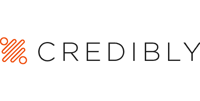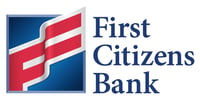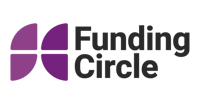Small business loans can be a great way to get necessary funding for your business. However, there are a lot of factors that go into picking the best loan, from the rates and fees to the repayment structure. In this guide, we'll discuss the different types of business loans and what to look for when comparing options. We'll also provide some of our top picks to help you start your search.
Best for businesses with high incomes but low credit scores
Credibly

Credibly offers a variety of financing types to businesses that may not otherwise qualify with another lender. They offer the financing both directly and through a network of lending partners.
- Loans available to business owners with less-than-perfect credit scores
- Loan officers that emphasize the importance of only borrowing what you need
- Five specific types of financing offered
- Fast approval and funding
- Daily, weekly, and monthly payment options
- High annual income requirement
- Startups typically don't qualify for funding
- Risk of losing collateral
Best for SBA loans and businesses that need in-person assistance
First Citizens Bank

First Citizens Bank is an excellent small business lender with a wide variety of loan types, including all of the major SBA loans as well as some proprietary small business loan products. It has excellent customer service through its vast branch network, and could be a great fit for businesses located within the states where the bank operates.
- Variety of loan products
- Large branch network
- Highly rated customer service
- Application isn't fully online
- Branches are available in fewer than half of U.S. states
Best for established business owners with average credit who can't find cheaper financing
OnDeck

OnDeck offers short-term loans to established business owners with at least average credit, provided they can meet the revenue requirement. Repayment terms cap at 24 months and APRs are very high, so these loans are best for owners without cheaper options who can repay the loan quickly.
- Multiple loan types
- Accepts average credit scores
- No prepayment fee
- APRs are extremely high
- High revenue requirement
- Personal guarantee required
Best for well-qualified, established businesses
Funding Circle

Funding Circle pairs businesses that have been in business for at least two years with individual investors for term loans, lines of credit, and SBA loans. Eligible business must have at least fair credit, with a minimum accepted credit score of 660.
- Competitive rates for highly qualified borrowers
- Funding in as little as two business days
- Costly origination fees
- Businesses must be in operation for a minimum of two years
- Requires a lien on business
- Minimum credit score may be higher than some competitors
Best for business lines of credit
Bluevine

Bluevine specializes in business lines of credit that are easy to apply for, and also offers term loans through banking partners. It can be a great choice for businesses that can meet Bluevine's income requirements and want access to working capital as needed.
- Quick access to funds
- Easy application process
- Up to $250,000 in funding
- Short repayment terms
- High revenue requirement
- Not for newer businesses
What is a business loan?
A business loan is an agreement between your business -- or you, as the owner of that business -- and a lender for an agreed-upon amount. The lender will give you the money, and in return, you agree to repay that money at specific intervals. You will likely also need to pay additional interest fees, based on an APR (annual percentage rate) disclosed during the application process.
Types of small-business loans
There are a variety of small business loan options depending on your needs and qualifications.
1. Term loan
The simplest form of small business loan is a term loan. Think of this as similar to a basic personal loan. You'll receive a set amount of money, and you'll need to repay it in regular, equal installments. Your interest rate will be set at the time of disbursement and your payments won't change for the duration of the loan. Once you repay the loan, you're done and the account is closed.
2. Line of credit
A line of credit is sort of like a reusable term loan, or perhaps like a credit card. You can draw on the line of credit, then repay the amount borrowed to free up funds. You can then draw on the line of credit again at a future date. Exactly how often or how much you can draw at a given time will vary by loan and lender.
3. SBA (Small Business Administration) loan
An SBA loan is a term loan guaranteed by the Small Business Administration and offered by various banks and lenders. SBA loans are good for lenders because the guarantee from the SBA reduces the risk; if you default on the loan, the lender doesn't lose as much money. SBA loans are also good for borrowers, since the reduced risk allows lenders to offer better rates, lower down payments, and more flexible requirements.
4. Equipment loan
Business owners who specifically need a loan to purchase new equipment may want to look into dedicated equipment loans. These loans are typically structured like a regular term loan, except the equipment you buy will act as collateral for the loan. This often means lower rates and fees, though a down payment may still be required in some cases.
How to choose a small business loan
Here are a few factors to consider when deciding on a business loan:
- Structure: Do you want a one-time loan or a recurring line of credit? What type of collateral, if any, do you want to put up? Are you willing to personally guarantee the loan? All of these questions will factor into which type of business loan you choose.
- Repayment: Each loan and lender will have its own repayment structure. You may need to make daily or weekly payments, or get away with monthly ones. Consider how often you want to make payments before choosing a loan.
- Cost: Interest rates and other fees can all impact the cost of a loan. These costs will depend not only on the type of loan you choose, but on the specific lender, your credit history, and even your business's revenue. It's best to compare multiple loan offers to ensure you get the most affordable loan.
- Timing: When you urgently need a loan, you may be more concerned with how quickly you can get funding over other factors. Just make sure you aren't letting haste lead you into a bad deal.
Alternative business funding options
If a small business loan isn't right for your company, consider these other ways to finance your business.
Small business credit cards
I love using small business credit cards as a source of short-term funding for three reasons:
- It can be free. If you pay off your balance in full before the due date, most cards won't charge you interest. If you need to carry a balance, you can get a card with an intro 0% APR deal to avoid interest fees on that balance, too.
- They're reusable. Credit cards are like a line of credit; as long as you keep paying them off, you can use them again and again. In fact, using and paying off your card on time every month is a great way to build credit.
- You can earn rewards. When the business budget is tight, earning that 2% to 5% cash back on your big expenses can go a long way.
Check out our best small business credit cards to find the right fit for your business.
Outside investors
Many businesses grow with the help of financing from investors. This could be as simple as taking on a business partner, or as complex as finding an angel investor or venture capitalist. Just keep in mind that most investors will want some sort of say in how your business is run. At the very least, you'll need to repay your investors with regular dividends or a percentage of your revenue.
Fundraising and crowdsourcing
Plenty of small businesses get off the ground with a little help from friends and family. (If you're not going to pay that help back, then they're donors, not investors.) In today's digital age, you can also look for donations from the world at large on a crowdsourcing platform like Kickstarter or Indiegogo.
Personal loans
If your business revenue isn't great but your personal credit is, you could potentially qualify for a personal loan even if a small business loan isn't an option. Most personal loans are term loans that typically range from 24 to 60 months, though shorter and longer loans are available. Interest rates will depend heavily on your credit and income.
Merchant cash advance (MCA)
A merchant cash advance is very similar to a personal cash advance. It's an extremely expensive type of short-term financing that promises a portion of your sales revenue as repayment. The pro of this type of financing is that your personal credit isn't much of a factor. The downside is that your interest rates can easily hit triple digits. This should be considered last-resort funding, and only if you have absolutely zero other options.
Fees and terms you can typically expect
The terms and fees you get with your loan will depend on a lot of factors. However, here are some general points to consider when comparing your options.
Fees to watch out for
- Origination fee: Many loans, especially term loans, come with an origination fee. It's generally considered to be for the administrative costs of the loan. Not all loans charge this fee.
- Interest fee: The main fee you'll pay on any loan is the interest fee. This will depend on your interest rate. The higher the interest rate, the more fees you'll pay.
- Factor rate: Some financing products, like MCAs, don't provide an interest rate. Instead, they provide the factor rate. Multiplying the factor rate with the principal amount tells you the total you'll need to pay back. From there, you (or an online calculator) can determine your APR.
- Prepayment fee: Some lenders may charge you a penalty fee for paying off your loan early. That's because paying your loan off early usually cuts down on how much interest you pay overall.
- Application fee: This isn't a super common fee, but a few lenders may charge a fee just to apply for a loan. (I'd personally avoid these lenders.)
Figuring out your repayment terms
Broadly, the loan terms are all the terms and conditions that apply to your loan agreement. More specifically, we usually use the phrase to refer to the repayment terms, including the APR and payment frequency.
How long you have to repay your loan will vary based on a lot of factors, starting with the type of loan. An SBA loan could have a long repayment term of 10 years or more. Many small business term loans will have shorter repayment periods of around two years. A line of credit could have an even shorter repayment period of a year or less.
Your business loan agreement will spell out all of the repayment terms. Be sure to read through it carefully. You want to pay attention not just to your payments or how long the loan will last, but also to your total overall payment and your total interest.
What you need to apply for a small business loan
The specifics of a loan application will depend on the kind of loan. In general, though, you'll need this information:
- Owners' personal information: If you're the only business owner, then you just need your personal info. If there are multiple owners, the lender may want everyone on the application. In many cases, the owner will need to undergo a personal credit check.
- Business tax ID number: Depending on the structure of your business, this may be your EIN (Employer Identification Number) or your personal Social Security number (if you're a sole proprietor).
- Business checking account info: The money you borrow will need to be deposited into a business checking account. Most lenders will also require payments to be made via debit card or ACH transfer from a small business bank account.
Business banking statements: You may need at least three months' worth of bank statements to prove your company's annual revenue. Depending on your business and the lender, you may require more in-depth profit-and-loss documentation.
| Lending Partner | Min. Credit Score | Loan Amounts | Apr Range | Next Steps |
|---|---|---|---|---|

Credibly
|
Min. Credit Score: 500 or better, depending on the loan type | Loan Amounts: $5,000 to $600,000 | APR Range: Factor rates starting at 1.11 for applicants with excellent credit only | |

First Citizens Bank
|
Min. Credit Score: Normal credit approval applies | Loan Amounts: $0 to millions | APR Range: Depends on loan type and term | |

OnDeck
|
Min. Credit Score: 625 | Loan Amounts: Line of credit: $6,000 - $100,000, Term loan: $5,000 - $250,000 | APR Range: Line of credit: 55.9% APR average, Term loan: 56.1% APR average | |

Funding Circle
|
Min. Credit Score: 660 | Loan Amounts: $25,000 to $5 million | APR Range: Start at 7.9% for highly-qualified borrowers | |

Bluevine
|
Min. Credit Score: 625 | Loan Amounts: Up to $250,000 | APR Range: Depends on rate and amount of credit line used |
We're firm believers in the Golden Rule, which is why editorial opinions are ours alone and have not been previously reviewed, approved, or endorsed by included advertisers. The Ascent, a Motley Fool service, does not cover all offers on the market. The Ascent has a dedicated team of editors and analysts focused on personal finance, and they follow the same set of publishing standards and editorial integrity while maintaining professional separation from the analysts and editors on other Motley Fool brands.